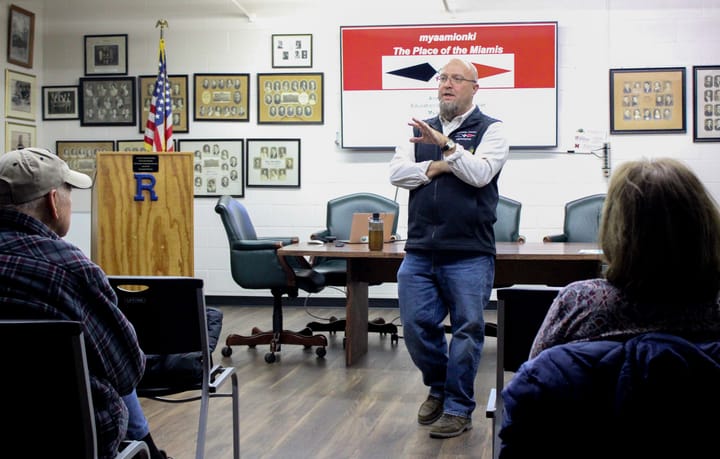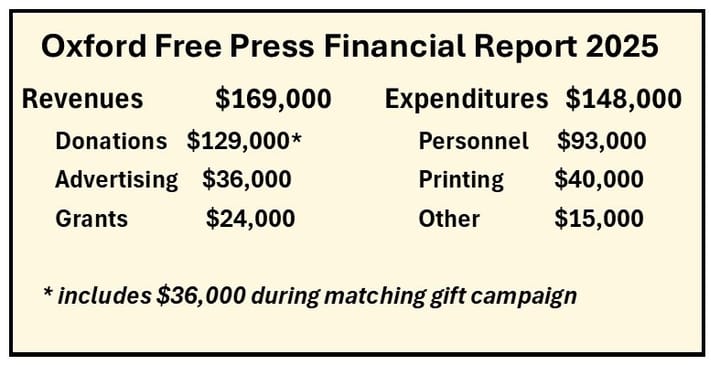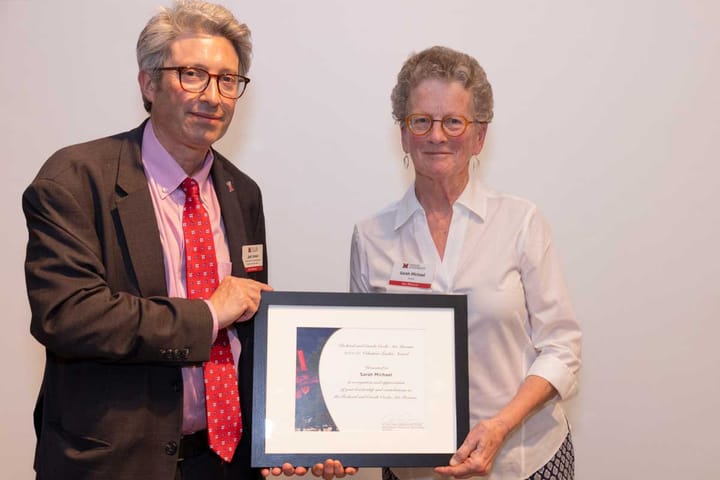No Kings protest attracts hundreds in Oxford
Oxford's No Kings protest, one of more than 2,000 across the country, was by far the best-attended political demonstration in the city so far this year.
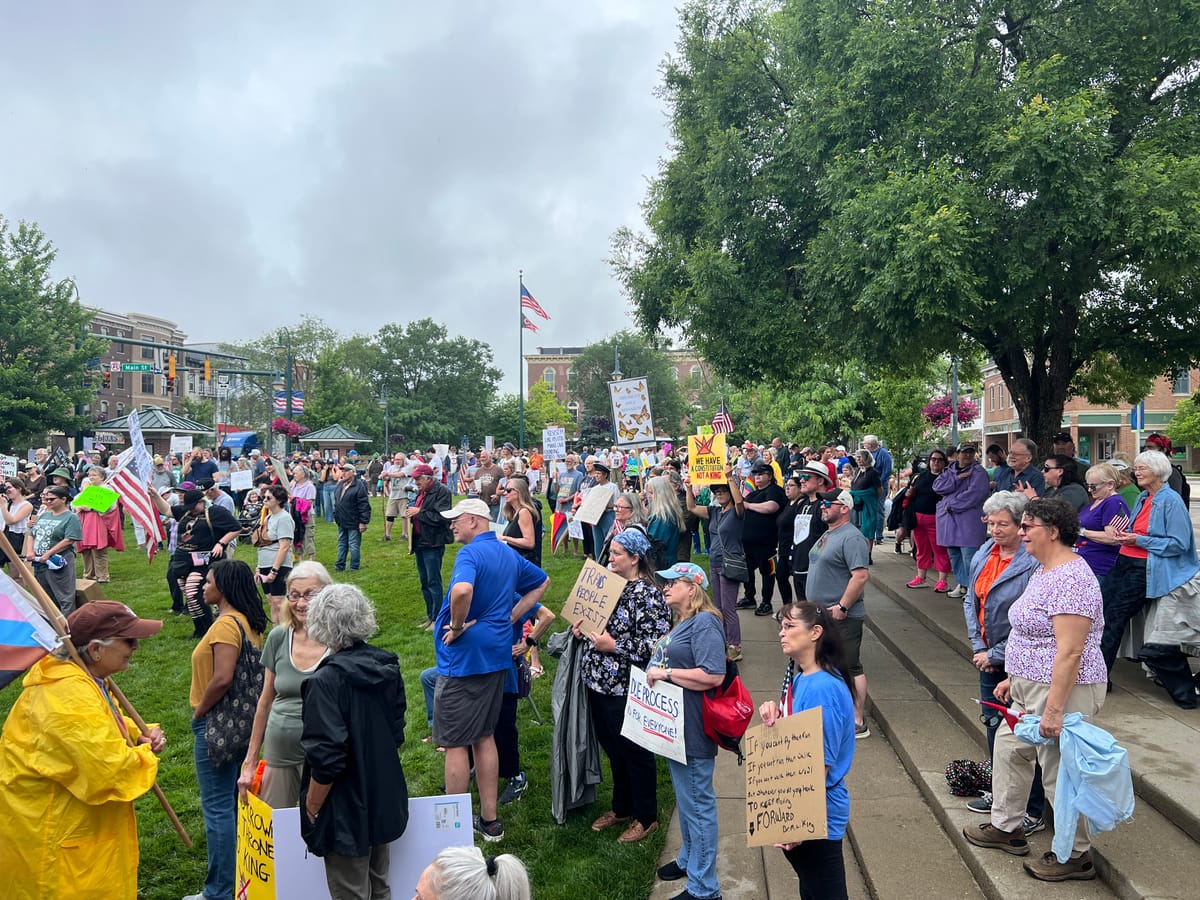
As protestors in more than 2,000 cities across all 50 states showed up for No Kings protests opposing President Donald Trump’s administration June 14, Oxford’s peaceful protest drew a large crowd despite the city’s smaller summer population. Roughly 800 protesters attended the gathering, according to organizers, more than doubling the size of the previous largest political protest in Oxford so far this year.
The national protests were the largest demonstrations so far opposing Trump’s second term. Organizers scheduled the event to coincide with a military parade on Trump’s birthday. The parade was the first of its kind in decades and was officially held to celebrate the 250-year anniversary of the formation of the Continental Army.
The No Kings demonstrations came at a tense time for Americans. The weekend before, protests against ICE raids in Los Angeles turned violent as Trump called in the California National Guard, circumventing California Governor Gavin Newsom’s authority. On the morning of the No Kings protests, two Democratic lawmakers and their spouses were shot and one died, prompting Minnesota Governor Tim Walz to encourage protestors not to gather in the state as a manhunt for the suspect continued. The suspect, Vance Boelter, was apprehended on Sunday night.
“This is not the first incident of political violence in recent months,” Miami University professor Kevin Reuning said while addressing the Oxford crowd. “It is critical that we reject violence as a means to solve our political questions.”
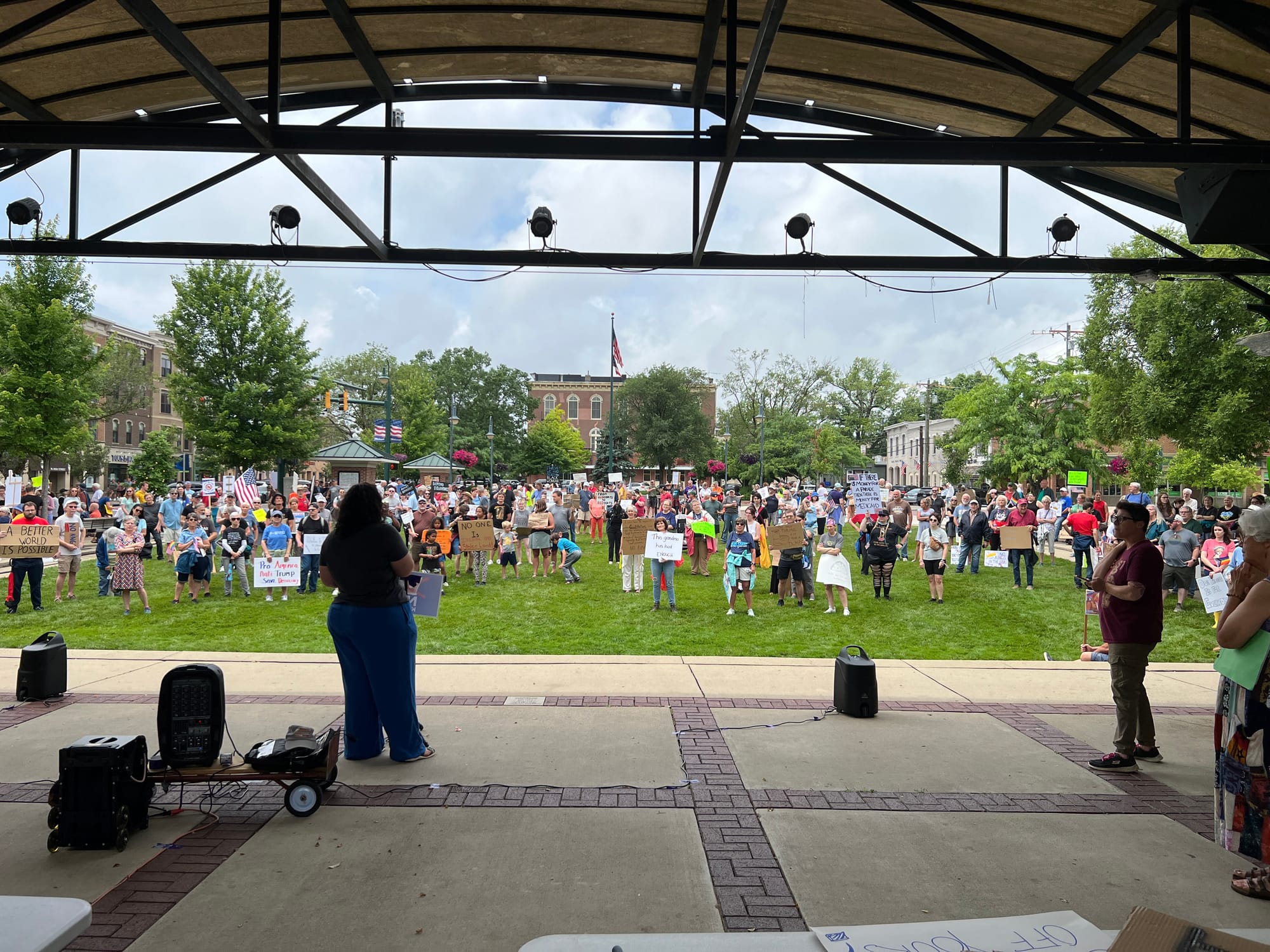
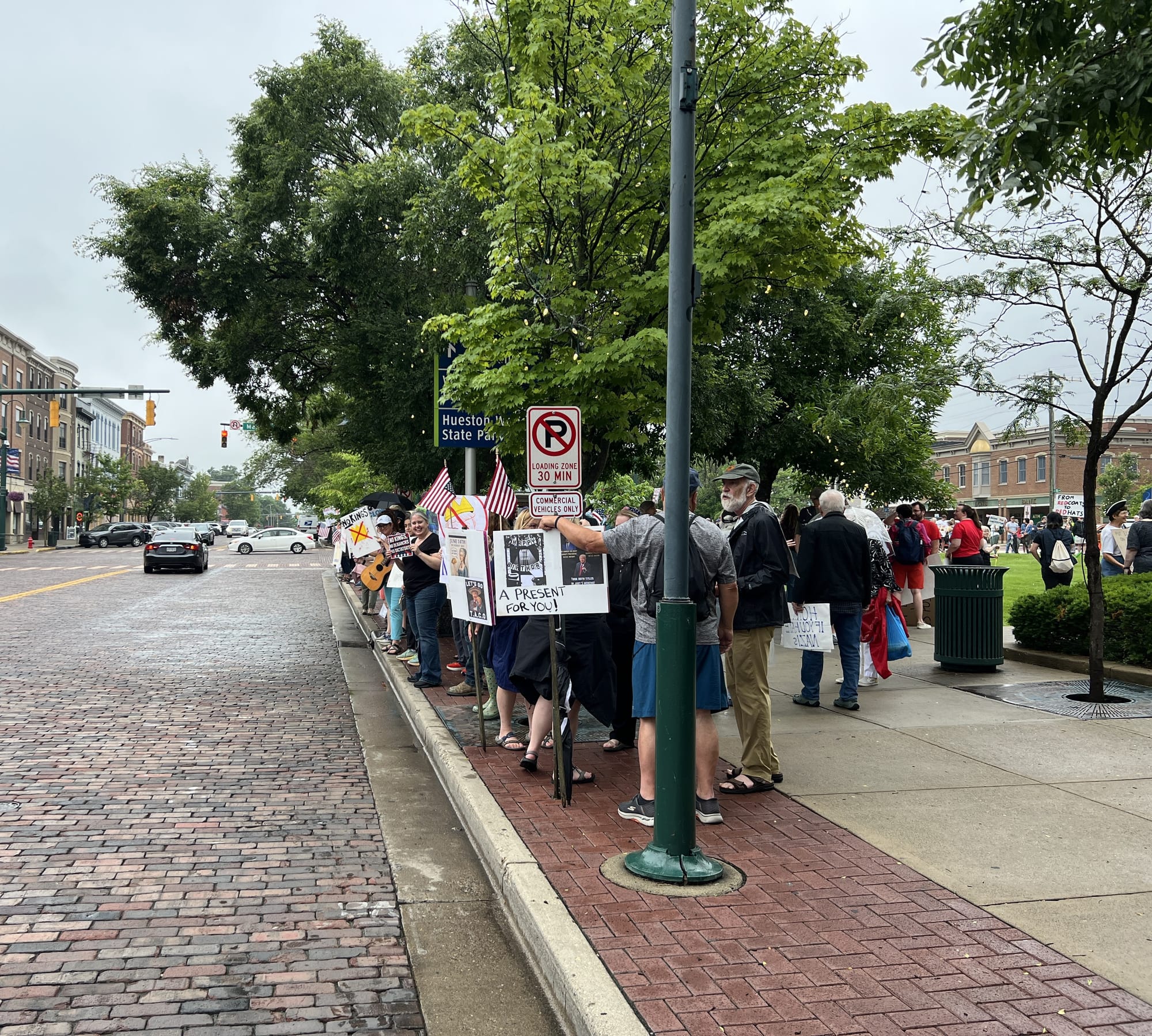
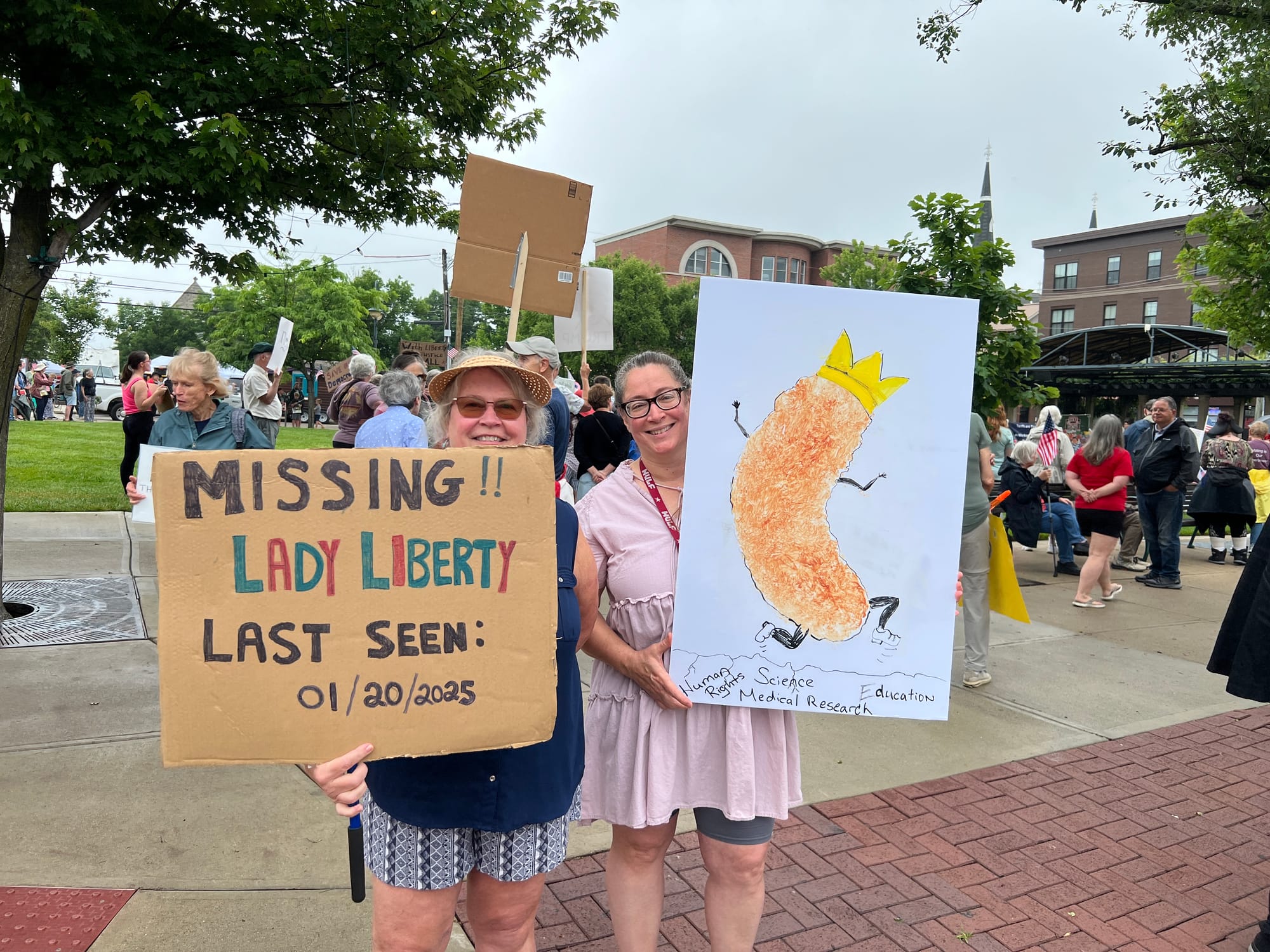
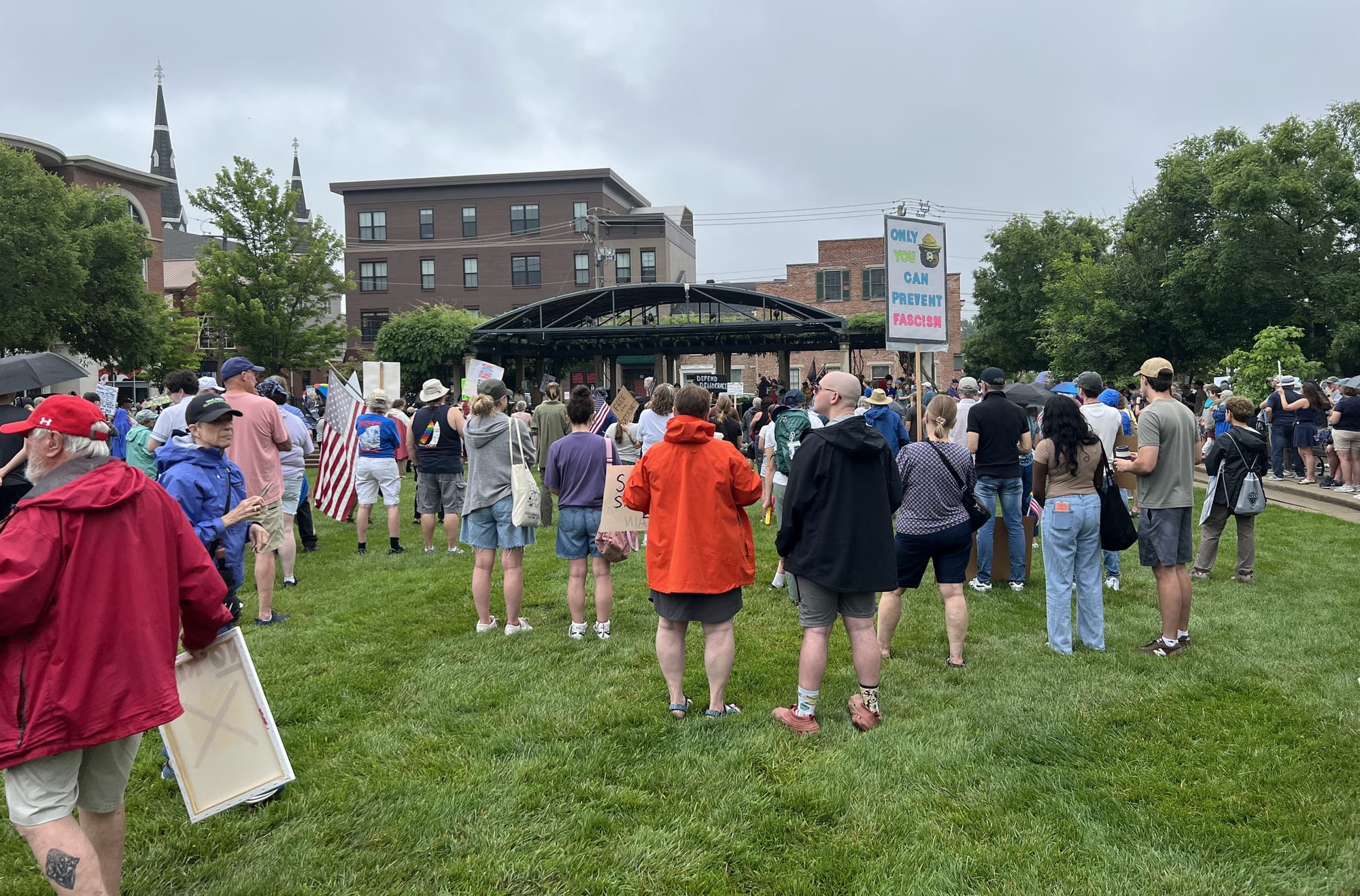
The June 14 protest was by far the largest political demonstration in Oxford so far this year, outpacing several other anti-Trump protests which attracted up to 275 people earlier this year. Photo by Sean Scott
Oxford’s protest was confined to the Uptown parks and featured several local speakers. Local organizations shared resources on voting rights and political activism during the event, and the Talawanda Oxford Pantry and Social Services accepted donations.
Elena Jackson Albarrán, a professor of global and intercultural studies and history at Miami, volunteered at a table gathering signatures for a referendum on Ohio’s Senate Bill 1. The legislation was signed into law this spring by Ohio Governor Mike DeWine and overhauls public higher education in the state, including by banning diversity, equity and inclusion initiatives.
During the protest, which ran from 12-2 p.m., Albarrán said they were able to collect almost 250 signatures in support of putting S.B. 1 on the ballot for voters to decide. Organizers have until June 25 to collect at least 250,000 signatures from at least 44 counties. If the referendum is successful, the law will be stayed until voters decide whether to approve it in November.
“Having a concrete thing that people can do to channel their frustration or their political energy in some direction … is a really good kind of channel and outlet,” Albarrán said. “It really is an exercise in direct democracy to sign this petition.”
Organizers across the state collected signatures from their respective protests. Albarrán said she heard from volunteers at other demonstrations who said the event led to a lot of signatures statewide, and she’s hopeful that the initiative will lead the issue to the ballot.
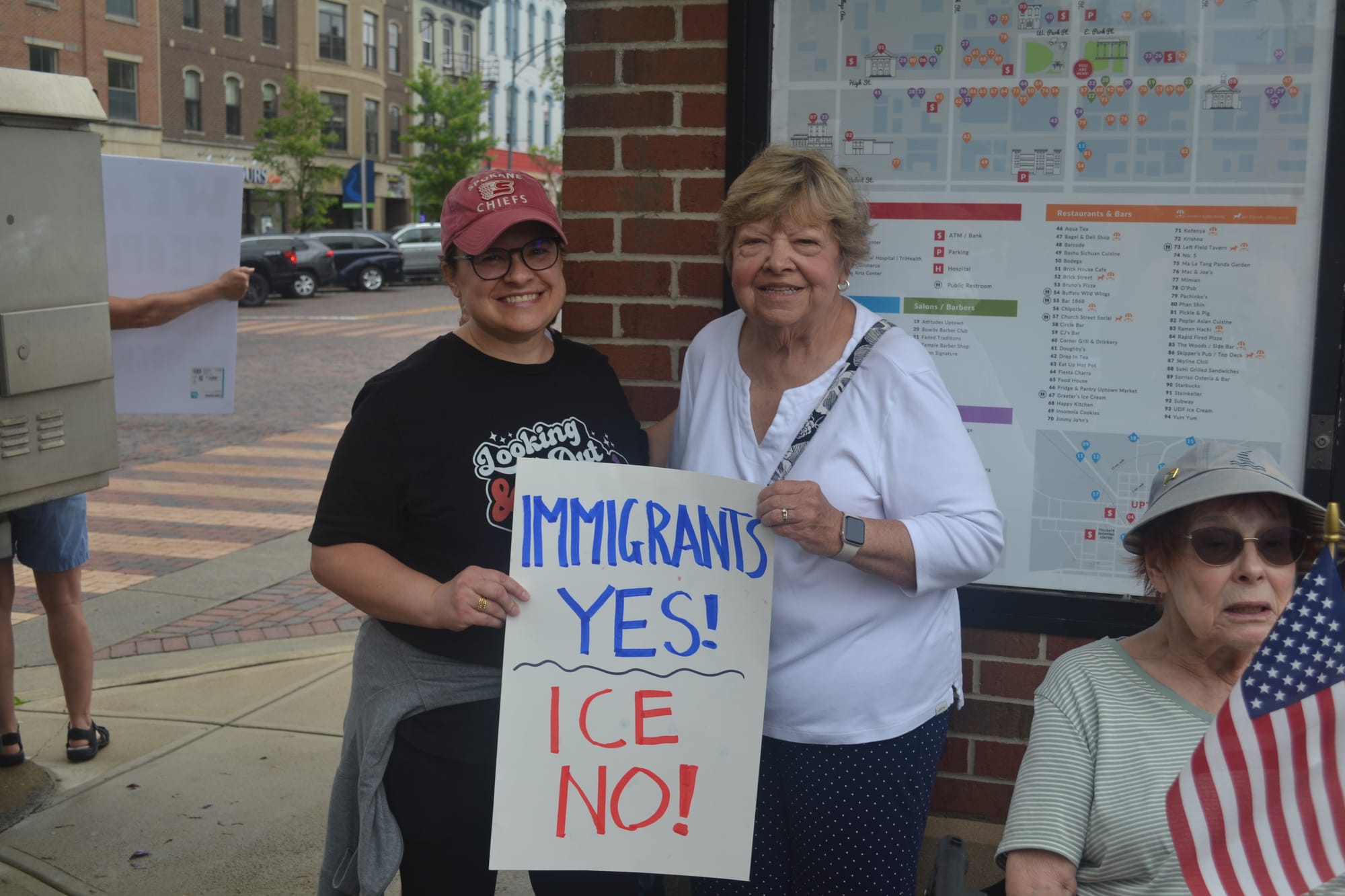
Many of the signs in Oxford focused on immigration and federal funding. Others centered on the perception that Trump has overstepped his presidential authority during his first months back in office
Roxanne Ornelas, a resident of Oxford for the past 17 years, came to the protest carrying an LGBTQ pride flag and an upside-down American flag, which she described as a symbol of distress.
“I’m here to defend the constitution and the rights and the principles that are laid out in those founding documents,” Ornelas said. Her parents taught her about civic engagement as a child, she said, and she views getting involved through activism and voting as a responsibility.
Earlier this month, Ornelas pulled a petition to run for Oxford City Council. Taking part in local protests helps Ornelas to think globally and act locally, she said, because people can make a bigger impact on their local communities than on national politics.
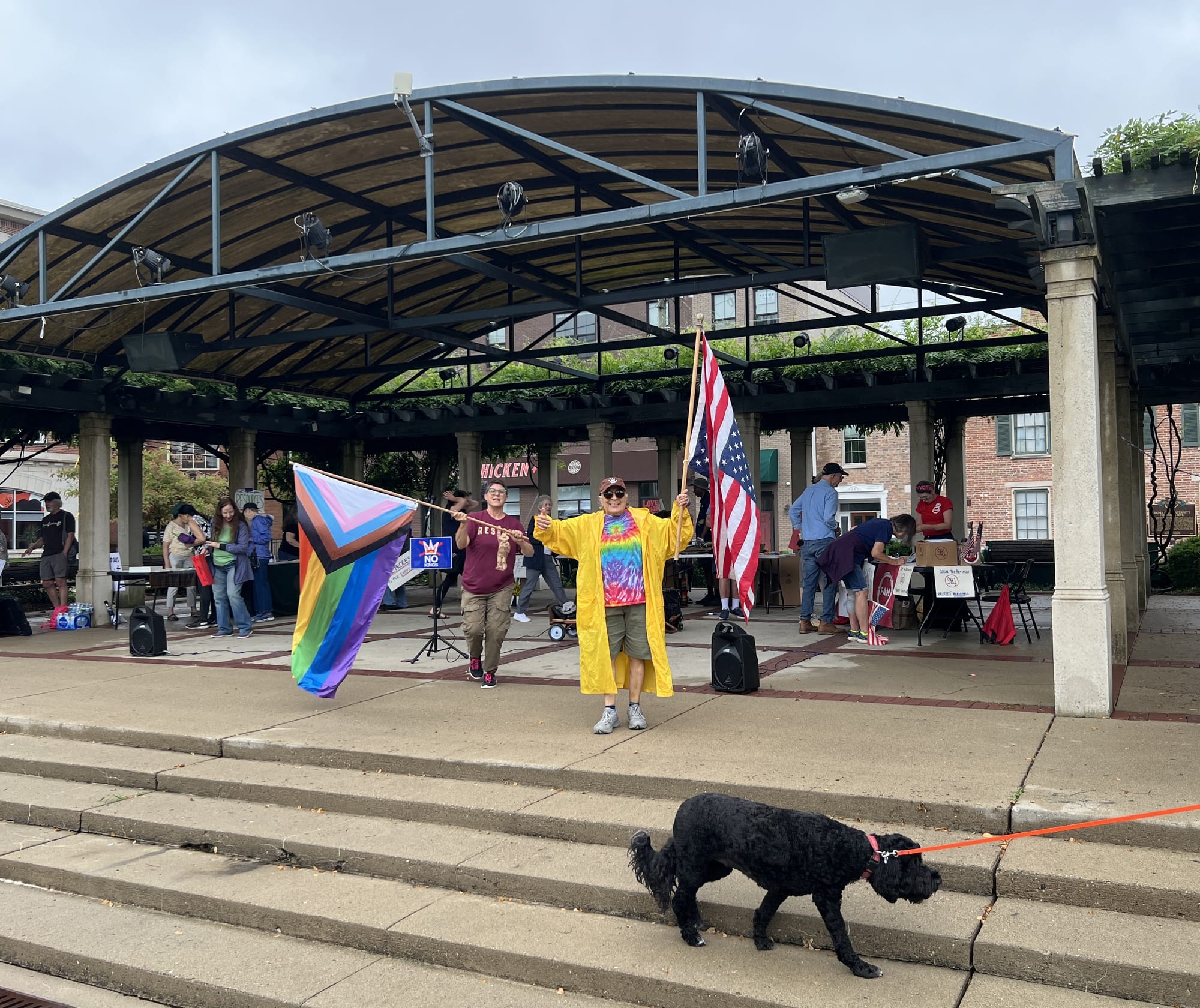
The Oxford protest attracted attendees from the surrounding area, as well. Laura Herold, a Millville resident, said she opposed Trump’s policies on immigration and tariffs. Last November, nearly 80% of Millville residents voted for Trump, which makes political discussions more difficult for her. She attended Oxford’s Hands Off protest in April, her first political protest.
“The people have power,” Herold said, “but they don’t have power to vote on bills … This is just, I think, my way of having some kind of a voice.”


